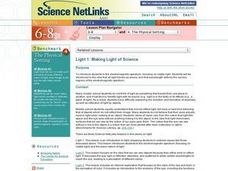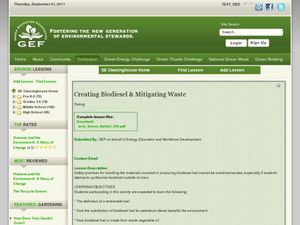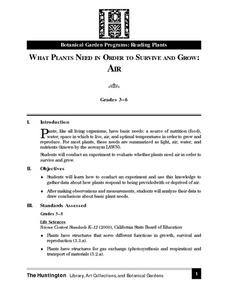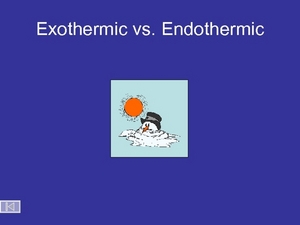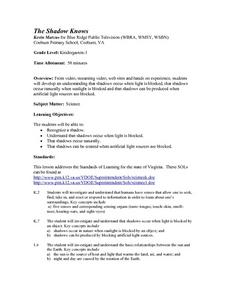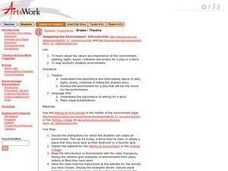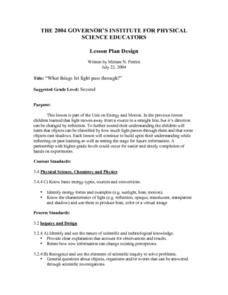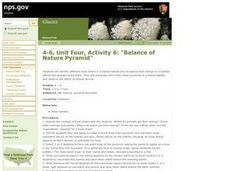Curated OER
Series or Parallel?
Emerging electricians extend mental models of light bulbs and resistors in series and or in parallel circuits to include the connection of photovoltaic cells in arrays. They investigate open circuits, using a DC voltmeter, a light...
University of Colorado
Can Photosynthesis Occur at Saturn?
In the 19th activity of 22, learners determine if distance from a light source affects photosynthesis. Participants capture oxygen in straws and find that the amount of water the gas displaces is proportional to the rate of photosynthesis.
Kenan Fellows
Electricity: Sources, Usage, Challenges, and the Future
What does the future of energy look like? Junior engineers collaborate to discover a solution to the global energy crisis during a very hands-on lesson. The unit focuses on learning through collaboration to develop a deep understanding...
Curated OER
E3 Project Instructional Plan: Light
Eleventh graders investigate the nature of light. In this physics lesson, 11th graders determine how light intensity varies with the distance of the light source.
Curated OER
Diversity of Colors
Students investigate color diversity by experimenting with jelly beans. For this color spectrum lesson, students observe colored jelly beans through different filters and light sources to change the existing look of the bean. Students...
Starry Night Education
The Year and Seasons
Turn your classroom into a live demonstration of how the earth and sun interact to create the four seasons. Using a globe, a light source, and a series of constellation cards, super scientists discover how the motion of these...
Curated OER
Making Light of Science
Young scholars investigate the electromagnetic spectrum, focusing on visible light. They are introduced to the idea that all light travels as waves, and that wavelength defines the various regions of the electromagnetic spectrum.
Curated OER
An Introduction to Light Unit-Third Grade
Third graders are introduced to light in an eight part unit which includes activities, additional resources, and rubrics for each part. Students address topics such as energy, reflection, absorption, and refraction through hands-on...
Curated OER
Creating Biodiesel and Mitigating Waste
Biotechnology pros produce their own biofuel using waste oil and fresh vegetable oil. They test the quality of their product using titration techniques and pH analysis. They write their observations and report their findings. Be aware...
Curated OER
Energy Detectives at Work
Students are "Energy Detectives" working for an engineering firm that does energy evaluations at schools. In teams, they locate energy sources around the school, and record their findings on an Energy Detective Worksheet.
Curated OER
Energizing Resources
Seventh graders describe electrical energy and how it is produced. In this natural resource activity, 7th graders explain the various ways of obtaining and using natural resources for energy and the environmental consequences. They will...
Curated OER
What Plants Need in Order to Survive and Grow: Air
Young scholars conduct an experiment to determine whether plants need air in order to survive and grow. They discuss natural resources, analyze slides, and observe and record data from the experiment.
Curated OER
Exothermic vs. Endothermic
The PowerPoint opens with video footage of the decomposition of nitrogen triiodide and then explains it with diagrams. Graphs of exothermic and endothermic reactions are exhibited, as well as one for the effect of a catalyst on reaction...
Curated OER
The Shadow Knows - Creating Shadows
Young learners recognize a shadow and witness how shadows occur when light is blocked. They access streamed video, standard video, and websites in order to engage in their study of how light is naturally blocked to create shadows. An...
Curated OER
Imagining the Environment: Introduction
Learners examine the importance of the environment including the setting, lights, sound, costumes, and props for a play or story. They visualize the appropriate environments and practice applying the techniques.
Curated OER
You Light Up My Life
Third graders participate in various experiments involving light. They demonstrate how light travels in a straight line until it strikes an object. Students show ways that light can be reflected, refracted, and absorbed.
Curated OER
Shadow Interlude
Students explore light and shadow and discover that the sun is the primary source of light. they explore the aspects of light and that the size and shape of a shadow depends on the proximity of the light source and create a sundial.
Curated OER
What things let Light Pass Through?
Second graders classify objects according to how well light can pass through them and predict how well objects will transmit light. They experiment with objects to verify predictions while collecting, recording, and interpreting data...
Curated OER
Balance of Nature Pyramid
Students study the concept of food chains and create a physical forest food chain pyramid. For this balance of nature pyramid lesson, students identify the ingredients needed on each level of the pyramid then make connections...
Texas State Energy Conservation Office
Unit 2 - Section 2 - Fuels for Everything
In this alternative energy worksheet, 6th graders read and study the varying types of fuel. Students read examples and ways that alternative fuel can be used.
Curated OER
Light
Students observe how light can be reflected, refracted, and absorbed. In this light lesson, students discover that light travels in a straight path. This lesson contains a "bonus" activity that explains how to make a kaleidoscope.
Curated OER
Solar Lesson
First graders complete sunlight and solar effects activities to learn about light and its power. In this solar activity instructional activity, 1st graders complete a sunscreen test activity, a light test, a black light test, a cloudy...
Curated OER
Energy and the Environment
Fifth graders define alternative energy form, design models which show how the energy source can be used, and explain the purpose of dams.
Curated OER
Color and Spectrum
Learners examine the spectra of light sources that have similar colors. In this light lesson plan students complete an activity using various lights in the classroom and discuss the colors and the heat generated.








